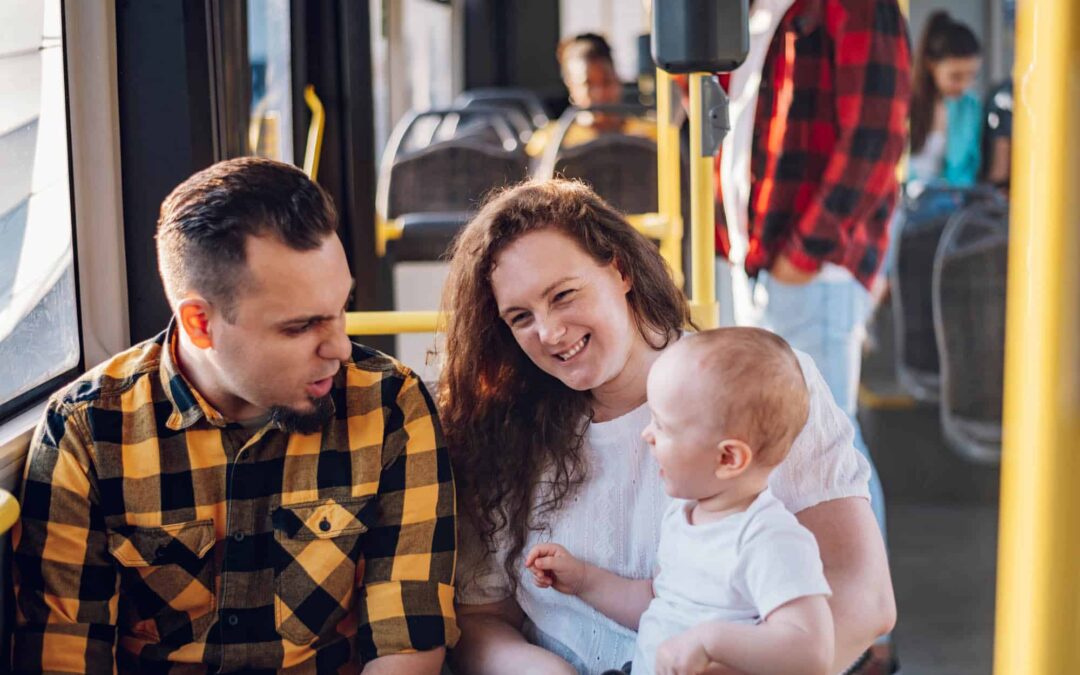Types of Family Therapy for Addiction
Family therapy offers a variety of options tailored to address addiction-related challenges. Each therapeutic model is designed to enhance communication, mend relationships, and support recovery efforts. Here’s an overview of some effective family therapy options for addicts:
1. Behavioral Couples Therapy (BCT)
Behavioral Couples Therapy (BCT) centers on improving communication and support between partners. This therapy focuses on creating a supportive environment that encourages sobriety by addressing relationship dynamics that may contribute to substance use. BCT enables couples to work together toward common goals, fostering a sense of partnership in the recovery process.
2. Multi-Dimensional Family Therapy (MDFT)
Multi-Dimensional Family Therapy (MDFT) is specifically aimed at adolescents and their families. This approach addresses various dimensions of an adolescent’s life including family, peers, and community influences. MDFT seeks to identify and alter patterns that contribute to substance misuse, emphasizing joint family involvement as a crucial factor in recovery.
3. Functional Family Therapy (FFT)
For individuals looking to improve family dynamics during recovery, Functional Family Therapy (FFT) offers a solution. FFT focuses on enhancing communication and understanding among family members while addressing dysfunctional behavior patterns. By promoting positive interactions, FFT helps reduce the risk factors associated with substance abuse.
4. Brief Strategic Family Therapy (BSFT)
Brief Strategic Family Therapy (BSFT) is designed to address youth substance misuse through family relationships. It identifies problematic interactions within the family unit and devises strategies for change. Through BSFT, families learn to recognize harmful behaviors and develop healthier ways of relating, which can significantly impact the youth’s journey toward recovery.
5. Solution-Focused Brief Therapy (SFBT)
With a goal-oriented approach, Solution-Focused Brief Therapy (SFBT) emphasizes resolving addiction issues by leveraging existing strengths within the family. SFBT encourages clients to envision their desired future and collaboratively work towards those outcomes. This method fosters hope and motivation by focusing on solutions rather than problems.
6. Community Reinforcement and Family Training (CRAFT)
Community Reinforcement and Family Training (CRAFT) is designed to reinforce positive behaviors in treatment engagement. CRAFT trains family members to support their loved one’s recovery actively by using positive reinforcement techniques. This model aims not only at reducing substance use but also at improving the overall quality of life for both the individual struggling with addiction and their family members.
Each therapy type presents unique benefits tailored to different needs and situations related to addiction recovery. By exploring these models, you can find a path that aligns best with your family’s specific circumstances and recovery goals.
Benefits of Family Therapy in Recovery
Family therapy plays a crucial role in the recovery process by fostering healthier dynamics within the family unit. It enhances communication among family members, helping them express their thoughts and feelings effectively. This improvement in dialogue is instrumental in addressing misunderstandings and building trust.
Identifying Enabling Behaviors
Identifying enabling behaviors is another significant benefit. Many families unknowingly contribute to addiction by supporting harmful habits. Through therapy, these patterns are recognized and changed, promoting healthier interactions.
Education About Addiction
Education about addiction empowers families with knowledge about the condition’s complexities. This understanding aids in dismantling stigma and fosters a more supportive environment for recovery.
Conflict Resolution and Trauma Healing
Conflict resolution and trauma healing are fundamental aspects of family therapy. Many families dealing with addiction have unresolved issues that need addressing to move forward positively. Therapy offers tools for resolving conflicts and healing past traumas.
Reducing Isolation
Isolation often accompanies addiction, affecting both the addict and their loved ones. Family therapy reduces these feelings of loneliness by creating a network of support that encourages openness and shared experiences.
Strengthening Familial Bonds
Strengthening familial bonds is vital for sustained recovery. The collaborative efforts in therapy sessions help rebuild connections that might have been strained or broken due to addiction, providing a solid foundation for long-term healing and growth.
If you or your family member needs assistance in this journey towards recovery, don’t hesitate to reach out. You can start your path to healing by contacting us at Resolute Recovery.
Role of Family Involvement in Recovery
Family involvement in therapy plays a crucial role in the recovery process. The encouragement and support from family members can greatly impact an individual’s journey towards sobriety. When parents of addicted loved ones actively participate, they provide emotional backing that enhances motivation and commitment.
Avoiding Enabling Behaviors
Understanding how to avoid enabling harmful behaviors is crucial. Families often unknowingly contribute to the addiction cycle by providing financial support or ignoring behaviors that need addressing. Through therapy, families learn healthier ways to support their loved ones without perpetuating dependency. This is where family therapy comes into play, offering valuable strategies for avoiding such enabling behaviors.
Comprehending Addiction Complexities
Therapy sessions are instrumental in helping families grasp the complexities of addiction. By gaining a deeper understanding of what their loved one is experiencing, family members can foster empathy and patience, which are essential for effective communication and support. Family therapy also aids in comprehending these complexities, making it easier for families to understand the addiction cycle.
Developing Coping Strategies
Creating coping strategies is another vital aspect for families dealing with addiction. These strategies help manage stress and emotional turmoil, ensuring that family relationships improve during recovery. Equipped with these tools, families become resilient supporters, contributing positively to their loved one’s recovery journey. For instance, when dealing with specific types of addiction like gambling, developing tailored coping strategies becomes essential.
The integration of these elements ensures that family involvement transforms into a powerful ally in combating addiction and rebuilding healthy relationships.
Integration with Treatment Programs
Integrating family therapy into addiction treatment programs offers a holistic approach to recovery. Both inpatient and outpatient rehabilitation settings can incorporate family therapy to tackle substance abuse issues comprehensively. This integration supports not only the individual but also the family unit, addressing dynamics that may contribute to addiction.
Inpatient Rehabilitation Programs
Inpatient rehabilitation programs provide a controlled environment where family therapy sessions can be scheduled regularly, allowing families to engage in structured support. These sessions focus on healing relationships and enhancing communication, which are crucial for long-term recovery.
Outpatient Rehabilitation Programs
Outpatient rehabilitation programs offer flexibility, accommodating families’ schedules through virtual session options. This adaptability ensures that even those with time constraints or geographical challenges can participate actively in the recovery process. Virtual sessions maintain the continuity of therapeutic support without compromising accessibility.
Creating an aftercare plan that includes ongoing family support is essential for sustained recovery. Such plans often involve regular family meetings and continuous access to resources and counseling, ensuring that families remain engaged in their loved one’s journey towards sobriety. By reinforcing these familial ties, individuals are more likely to maintain their progress and avoid relapse.
Family Therapy options for addicts play a crucial role in bridging the gap between clinical treatment and real-world application, supporting both the individual and their loved ones on the path to recovery.
Considerations for Family Therapy
Family therapy provides a safe space for healing, but it’s important to know when it may not be the right choice. Past incidents of violence or unaddressed mental health problems can make therapy more challenging, so it’s important to evaluate the situation carefully. It’s also crucial to determine if the family is ready to take part in therapy sessions and if each member is willing to participate in a constructive manner. This evaluation is especially important in substance misuse rehab programs, as it helps provide personalized support for families dealing with alcoholism. By understanding these factors, we can ensure that family therapy becomes a positive influence on the path to recovery and healing.
Community Resources and Support Groups
Navigating the challenges of addiction can be difficult, but community resources offer vital support for families. Family Recovery Support Groups provide a safe space to share experiences and gain insights from others facing similar struggles. The Substance Abuse and Mental Health Services Administration (SAMHSA) plays a crucial role by offering educational materials and resources that guide families through the recovery process. Finding local support groups tailored to specific needs is essential, as they provide personalized guidance and understanding. Organizations like American Addiction Centers also contribute by connecting families with the necessary tools and information to foster healing and recovery.
Seeking Professional Help Through Resolute Recovery
When dealing with the complexities of addiction, Resolute Recovery is here to help both addicts and their families. We believe in the power of Family Therapy options for addicts and take a holistic approach to healing that puts the well-being of the entire family first. Our comprehensive care includes:
- Tailored therapy sessions designed to address individual and family needs.
- Resources and support specifically for families of alcoholics.
- A compassionate team committed to guiding you through each step of recovery.
We know that recovery can be tough and there may be setbacks along the way. That’s why we offer practical steps to take when a loved one relapses, so you have the right tools and support during these difficult times.
To further support your loved ones’ recovery journey, we emphasize the importance of building a strong sober support network. This network can play a vital role in providing the encouragement and assistance needed throughout the recovery process.
At Resolute Recovery, our mission is to heal together. Explore our resources and empower your loved ones’ journey towards recovery.





